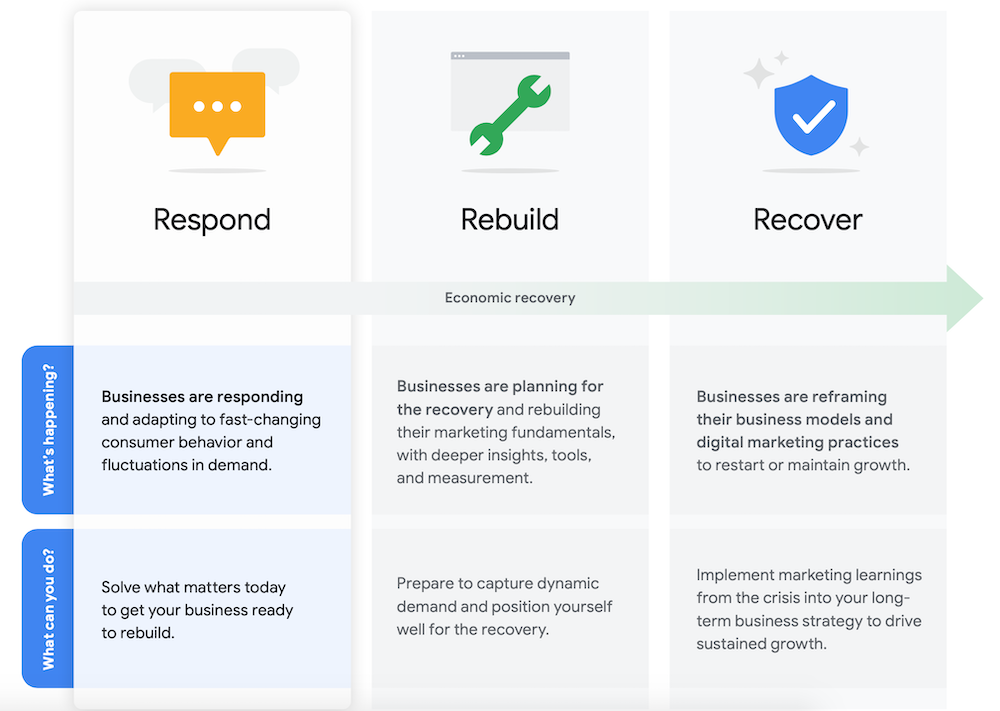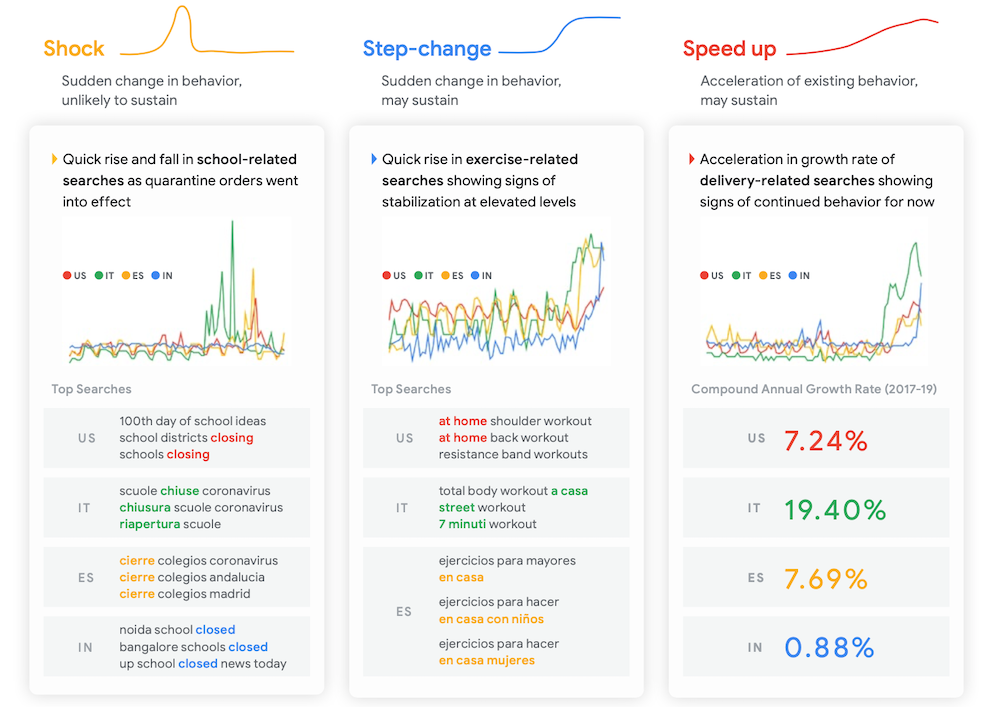An Overview of Google's COVID-19 Marketing Playbook
Google has released a COVID-19 marketing guide to help businesses adapt their marketing strategy during the pandemic. The guide contains current insights into how consumers, companies and industries are responding to this new reality, and the path to economic recovery.
According to Google, this path has three stages:
- Respond: businesses are responding and adapting to changing consumer behaviour and changes to supply and demand
- Rebuild: businesses are rebuilding the fundamentals of their marketing strategy with new insights and tools
- Recover: businesses are implementing what they have learned during the crisis to rebuild their long-term business model and marketing practices

As businesses adapt and move through these stages, their marketing strategy needs to adapt as well. Google defines how to approach this in three ways.
1. Consumer insights to drive your approach
As businesses make changes to both their short and long-term marketing strategy, it’s important to understand how the behaviours of their target audiences may have changed. This part of the guide is very interesting as Google details some of the search patterns they’ve observed during the pandemic thus far.
The first, “shock” reflects a sudden change in consumer behaviour, that is unlikely to sustain: for example, the quick rise and fall of school-related searches when the quarantine orders were announced. The next, “step-change” also reflects a sudden change in consumer behaviour, but one that may sustain: the example given here is the number of exercise-at-home related searches. The final new pattern is defined as “speed-up” and reflects an acceleration of existing behaviour, which also may sustain, such as delivery-related searches.

Other interesting insights include data on how much mobile or other device use has increased across all consumers, as the world becomes (even) more virtually connected.
Businesses can stay on top of changing trends in the market by relying on four of Google’s tools: Google Trends, Shopping Insights, Google Alerts and Find My Audience.
2. Assess the impact on your business
Google has found that there are typically four scenarios that businesses may be facing right now, and each requires a different response to “sustain business in the short term and lay the foundation for recovery”.
Whether a business is experiencing new challenges, reassessing priorities, pivoting to adapt products and services or investing to meet increased demand, Google’s guide offers digital marketing strategy recommendations unique to each scenario, which can help businesses more forward.
3. Take action now
The nature of this crisis requires us to go beyond business as usual. For marketers, it can be a chance to try new strategies, think outside of the box, and reinvent the way we connect with audiences. And when we get through this, the innovative and compassionate approaches we put in place have the potential to bring us closer with our customers and communities.
The digital marketing strategies that Google has curated in this guide can help affected businesses manage their approach, adapt to their new normal, and begin planning for recovery. Not only limited to paid advertising strategies, the guide also covers best practices to make sure creative and media campaigns stay relevant as well.
You can check out Google’s post and download the guide here: Navigating the road ahead: a guide to help businesses adapt marketing strategies in wake of COVID-19
—
Image Credit: Dave Adamson on Unsplash


